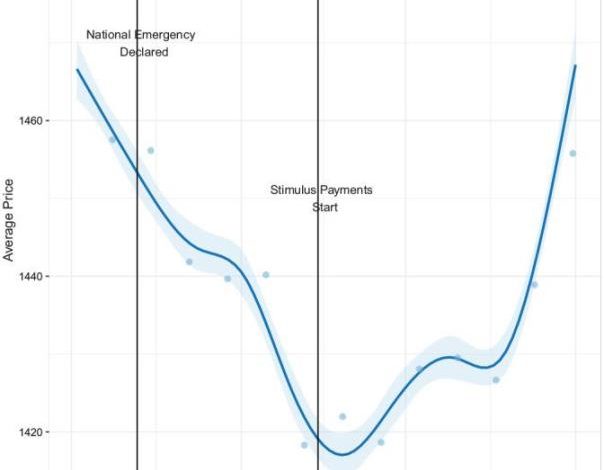The Impact of COVID-19 on the Rental Market

The Impact of COVID-19 on the Rental Market
Introduction
The COVID-19 pandemic has affected millions of people worldwide, and the rental market is no exception. With lockdowns, travel restrictions, and economic uncertainties, the rental market has experienced significant changes. In this article, we will explore the impact of COVID-19 on the rental market and how it is affecting both landlords and tenants.
Impact on Rental Demand
1. Has the demand for rentals increased or decreased due to COVID-19?
The demand for rentals has fluctuated during the pandemic. Initially, many tenants opted to stay put, reducing the demand for new rentals. However, as the situation eased and people started relocating or seeking temporary accommodations, the demand began to pick up in some areas.
2. Are people moving out of cities to suburban areas?
Yes, one of the notable impacts of COVID-19 on the rental market is the increased interest in suburban areas. With remote work becoming more prevalent, many tenants are relocating outside of crowded cities to seek more spacious and affordable rentals.
Effect on Rental Prices
3. Have rental prices gone up or down?
Rental prices have experienced a mixed impact. In some urban areas that heavily relied on tourism and student rentals, prices have decreased due to a decrease in demand. However, in suburban areas and regions with a limited supply of rentals, prices may have remained stable or even increased due to high demand.
4. Have rent concessions become more common?
Yes, many landlords have been offering rent concessions to attract tenants during the pandemic. These concessions may include reduced rent, flexible lease terms, or waived fees. Landlords are adapting to the market conditions to maintain occupancy rates.
Changes in Tenant Behavior
5. Are tenants more interested in flexible lease terms?
Flexibility in lease terms has become increasingly important to tenants since the onset of the pandemic. With economic uncertainties and the possibility of future lockdowns, many tenants prefer short-term leases or provisions that allow them to terminate the lease early without significant penalties.
6. Are tenants more concerned about health and safety measures?
Absolutely. Tenant priorities have shifted towards properties that prioritize health and safety. COVID-19 has made tenants more conscious of features like contactless entry systems, proper ventilation, and cleanliness protocols. Landlords who adapt and implement these measures are more likely to attract tenants.
Conclusion
The COVID-19 pandemic has undoubtedly had a significant impact on the rental market. From changes in rental demand and pricing to shifts in tenant behavior, the market has been dynamic and constantly evolving. As we move forward, it’s important for landlords and tenants to adapt to the new normal, considering flexibility, health measures, and affordability.
Frequently Asked Questions (FAQs)
Q1. How can landlords attract tenants during the COVID-19 pandemic?
Landlords can attract tenants by offering rent concessions, implementing health and safety measures, and providing flexible lease terms.
Q2. Should I consider relocating to a suburban area?
Relocating to a suburban area depends on your individual circumstances and preferences. Consider factors such as remote work possibilities, affordability, and lifestyle changes before making a decision.
Q3. Will rental prices eventually recover?
Rental prices are expected to gradually recover as the situation improves and economic stability returns. However, the recovery timeline may vary across different locations.
Q4. Are rental market changes temporary or permanent?
While some changes may be temporary, such as fluctuations in rental demand, certain trends like the interest in suburban areas and the focus on health and safety are expected to persist even after the pandemic ends.
By understanding the impact of COVID-19 on the rental market, both landlords and tenants can make informed decisions and navigate these challenging times effectively. Stay updated with local regulations and adapt to the changing needs of the rental market.



